Let’s talk trauma therapy. You’re ready to heal, shed the baggage of past experiences, and reclaim your life. But a nagging question lingers: how long does trauma therapy take?
The short answer? It depends. Not the most satisfying response, is it? But hear us out. Trauma therapy isn’t a one-size-fits-all spa treatment. It’s a deeply personal journey, and the path to healing is unique for everyone.
Here’s the thing: trauma isn’t a competition. There’s no gold medal for “Fastest Trauma Recovery.” Comparing your progress to someone else’s only sets you up for frustration.
So, ditch the stopwatch and focus on the incredible strength it takes to embark on this journey. Let’s delve into the factors that influence the duration of trauma therapy, explore different therapy approaches, and equip you with tips to navigate your healing process.
Why Trauma Takes Time to Heal
Imagine your mind as a garden. Trauma is like a storm that rips through, scattering seeds of fear, anxiety, and negative emotions. Healing is the process of cultivating that garden – weeding out the negativity, nurturing healthy growth, and fostering resilience.
The time it takes depends on several factors:
- The nature of the trauma: A single car accident might have a different impact on someone compared to experiencing chronic childhood abuse.
- The severity of symptoms: Do you struggle with flashbacks, nightmares, or avoidance behaviors? More severe symptoms might require longer therapy.
- Your support system: A strong support network can significantly accelerate healing.
- Your personal coping mechanisms: Some people have healthier coping skills to manage stress, while others might need to develop them in therapy.
Benefits of Trauma Therapy
Regardless of the duration, trauma therapy offers numerous benefits:
- Emotional Regulation: Therapy helps individuals regulate intense emotions associated with trauma, leading to improved emotional well-being.
- Improved Relationships: Healing from trauma can enhance relationships by fostering better communication and boundary-setting skills.
- Enhanced Coping Skills: Clients learn effective coping strategies to manage triggers and navigate challenging situations with resilience.
- Increased Self-Awareness: Therapy promotes self-awareness, helping individuals understand their thoughts, feelings, and behaviors in the context of trauma.
- Post-Traumatic Growth: Many clients experience post-traumatic growth, where they develop a deeper sense of purpose, resilience, and personal growth after trauma therapy.
Different Paths Through the Healing Garden: Types of Therapy
There’s no single “best” approach to trauma therapy. Therapists employ a toolbox of techniques, tailoring them to your specific needs. Here are some common approaches:
- Cognitive Behavioral Therapy (CBT): CBT helps you identify and challenge negative thought patterns that contribute to emotional distress.
- Eye Movement Desensitization and Reprocessing (EMDR): EMDR uses eye movements to help you reprocess traumatic memories in a safe and controlled environment.
- Exposure Therapy: This approach involves gradually exposing yourself to triggers in a safe setting to help reduce anxiety and fear.
- Dialectical Behavior Therapy (DBT): DBT equips you with coping skills to manage difficult emotions, regulate your mood, and improve relationships.
The Therapy Timeline: A Rough Guide, Not a Rigid Rulebook
Here’s a glimpse into what therapy duration might look like, but remember, this is just a general guideline:
- Short-term therapy (8-12 weeks): This might be suitable for people who experienced a single, less complex trauma and have mild symptoms.
- Medium-term therapy (3-6 months): More common for individuals with moderate symptoms or a history of multiple traumas.
- Long-term therapy (6 months or more): This can be beneficial for those with complex trauma or severe symptoms.
These are just estimates. The duration of your therapy will be an ongoing conversation between you and your therapist.
Tips to Make the Most of Your Healing Journey
- Find the right therapist: A good fit is crucial. Look for someone who specializes in trauma and uses evidence-based practices. Don’t hesitate to interview therapists until you find someone you feel comfortable and safe with.
- Be patient and compassionate with yourself: Healing isn’t linear. There will be good days and bad days. Celebrate your progress, no matter how small.
- Practice self-care: Nourish your body and mind with healthy food, regular exercise, and relaxation techniques like yoga or meditation.
- Lean on your support system: Surround yourself with loved ones who understand your journey and offer encouragement.
- Be open and honest with your therapist: The more you share, the better they can tailor therapy to your needs.
Read more about “Trauma Therapy: Reclaiming Peace” by visiting our blog page today!
Healing is a Marathon, Not a Sprint
Trauma therapy is an investment in your well-being. It might take time, but the rewards are immeasurable. You’ll emerge stronger, more resilient, and equipped to live a life filled with joy and peace. Remember, this is your journey. Embrace the process, focus on growth, and celebrate every step forward. You’ve got this!Struggling to heal after a traumatic experience? Don’t wait for time to mend the wounds. Elysian Psychological Services offers personalized trauma therapy to get you back on track. Our experienced therapists will guide you at your own pace, helping you reclaim your life. Take control of your healing journey – contact Elysian Psychological Services today and start feeling stronger tomorrow.


